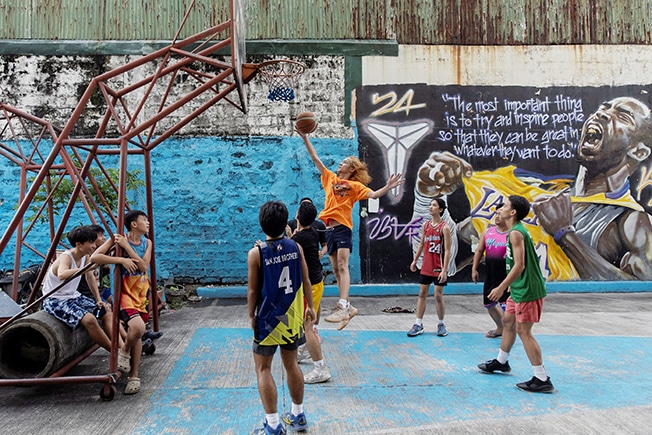It may be dwarfed by other nation’s sporting prowess, but the Philippines’ fervour for basketball is gigantic, and enthusiasm for the sport is only intensifying ahead of the 2023 FIBA Basketball World Cup, which opens in Manila on Friday.
Basketball is played everywhere and by almost everyone in the Philippines, which counts the sport as a national obsession along with boxing and beauty pageants.
There is a basketball court of sorts set up near most churches, and whether it is in a cemetery or near a sewer, these places of worship are ubiquitous in this majority Catholic nation of 112 million people which is co-hosting the FIBA world championships from Aug 25-Sept 10 with Indonesia and Japan.
“We are excited since the tournament will happen here. There are many players from the NBA that we are excited to see,” college student James Froilan Almeda told Reuters near championship venue Mall of Asia Arena. The NBA is the U.S. National Basketball Association.
The Philippines might not clinch the 32-nation championship but it can win some games, added Almeda. FIBA ranks the Philippines men’s team 40th globally and the women’s 42nd. Spain and the United States are in the top two spots.
Basketball first came to the Philippines in the 1910s, when it was a U.S. colony. American teachers introduced the game to the public school system, initially just for girls.
The appeal of basketball endured through the decades because of its simplicity, veteran sports anchorman Sev Sarmenta said.
“The love affair with basketball continues,” he told Reuters. “I will give you a backboard right here, I will find a piece of wire, it becomes our ring, I’ll attach it to the wall here and we can play. And it’s a scene repeated many times in many streets throughout the country.”
Basketball also cuts across all social classes in this developing nation, where nearly half the population consider themselves to be living in poverty, a recent survey by private pollster Social Weather Services showed.
Jessie Conde, a regular at a court built by waste pickers in the slums of Tondo, said he always turns to basketball when things get tough at home or at school.
His teammates, bare-chested and barefoot, typically bet 50 pesos ($1) each per game, with the winner often using the prize money to buy everyone refreshments.
“Once I’m on the court, I forget all my problems”, the 18-year-old said. At home, a statue of Jesus Christ wearing a Golden State Warriors jersey is prominently on display.
Even though the cheapest ticket for the World Cup costs almost half the minimum daily wage, organisers hope to smash the record attendance of 32,616 fans that watched the 1994 FIBA World Cup finals in Canada.
Opening games that include the Philippine team facing the Dominican Republic will be staged at a 52,000-seat arena. Ticket prices for these early games range from 249 to 19,199 pesos (about $4 to $342).
Laurah Agmata, who plays for her school’s varsity and the local community league by the train tracks in Manila’s Pandacan neighbourhood, said she was looking forward to seeing Jordan Clarkson represent the Philippines in the championship. One day, she hopes she can also play for her country like the Filipino-American NBA player who is currently with Utah Jazz.
“Sometimes I get discouraged because it’s often only boys who get opportunities in basketball,” the 15-year-old said. “But basketball is love.”

